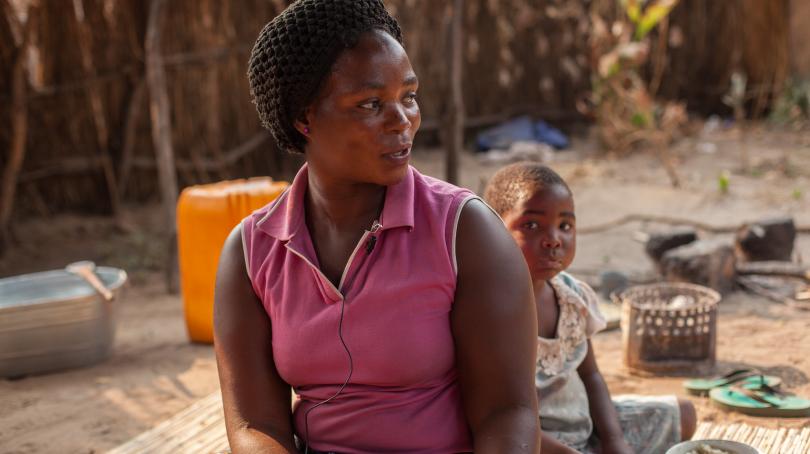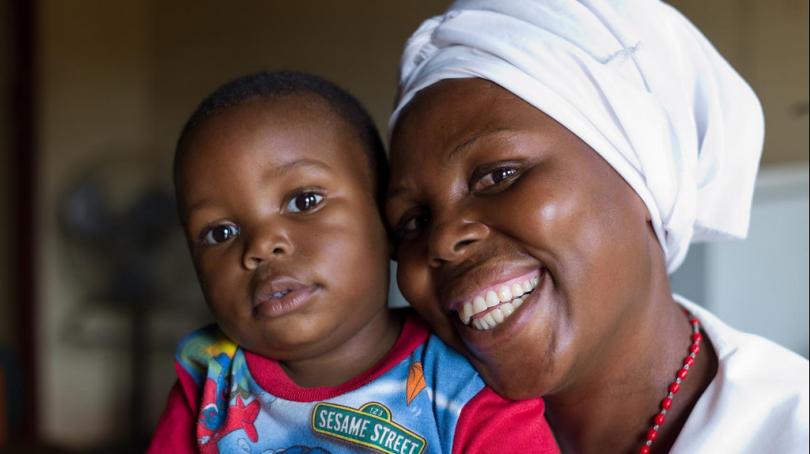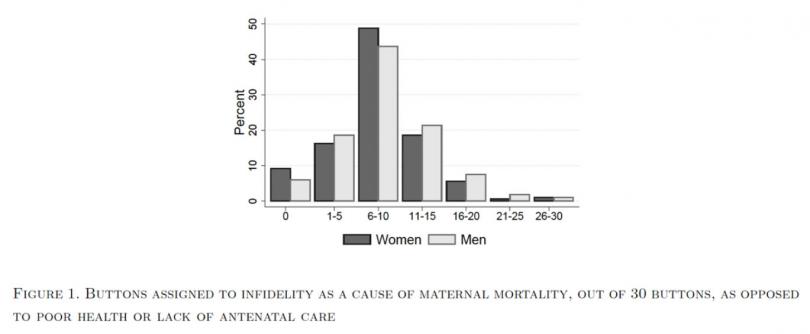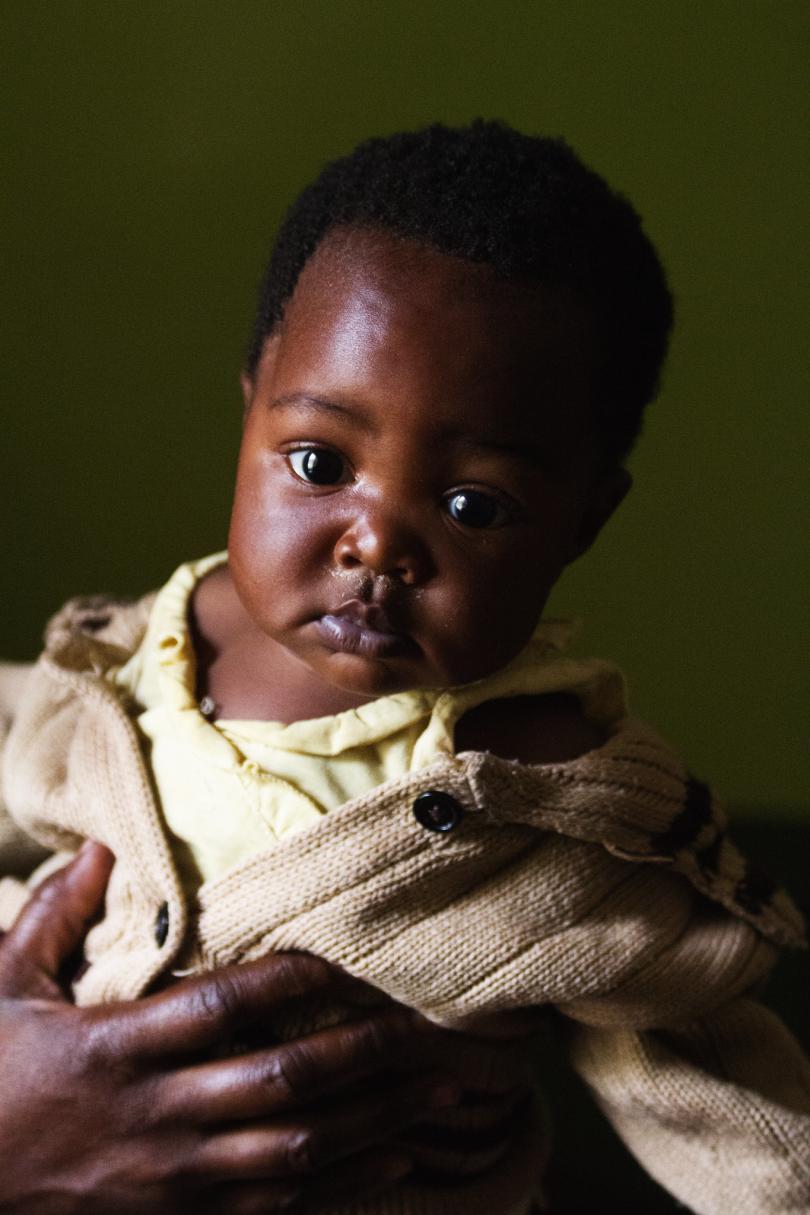
Health and environment

Photo by Bread for the world on Flickr
In this little country located in Southern Africa, birth complications are not treated and access to contraception remains difficult. Besides having poor access to medical services, traditional beliefs make pregnant women hide their problems, a silence that increases the already high maternal mortality rate.
In Zambia, 398 women out of 100 000 1 died of birth complications in 2013-2014, as compared to 8 in France (YEARS). To reduce this dismal record, the State of Zambia decided to implement medical care services and to provide contraceptive methods. However, this did not cover the entire territory, and health access improved very little because of resistance based on the population’s traditions and beliefs.
Zambian demographic and health data show that 41% of births between 2002 and 2004 were unwanted. But this calculation takes Zambian women into account more than men: it is the women who want to reduce the number of their pregnancies. Fertility reached a height of 5.58 children per woman in 2018 2 , placing Zambia 8th in world fertility tables. Repeated pregnancies can be difficult to handle, both physically and mentally. Only women have to face the disadvantages and costs of having children, which explains the difference in men’s and women’s estimates of the number of children they want to bring up. In Zambia, men generally want “0.8” more children than women do.
But who owns women’s wombs? In rural areas, health services do not give women the right to contraception without marital express consent 3 . In urban areas, men still put pressure on their wife’s choice. Nava Ashraf, Erica Field and Jean Lee 4 report that women favour contraceptives easily hidden from their spouse. They implemented an experiment using « vouchers » for free and simple access to contraception, aiming to identify mechanisms that prevent the use of anti-conceptive methods.

Photo by Clayton Smith on Flickr
To assess how men influence this choice, two treatments were presented to women in a marital relationship. In the first group, the male spouse was involved in the process whereas in the other group, the voucher was only offered to the woman. When their husband was present, only 19% of women accepted family planning help. This increased the number of women giving birth the following year to 27%. It was as if the man had a “veto” over the use of contraceptives.
A great deal of research has come to the same conclusion: in some African states, women prefer to use contraceptive methods that can be hidden, so as to conceal their choice from their husband. In the authors’ experiment, when women alone were targeted, 25% more accepted injection of a long-lasting hormonal dose (roughly 12 weeks). A method ensuring safety from prying eyes.
Women’s strategies reveal the discrepancy between male and female preferences on fertility. This shows the control men still have over women’s bodies, with long-lasting and harmful consequences. First, with the multiplication of pregnancies, maternal risk and morbidity rise. After 4 pregnancies, birth complications are proved to be more frequent. Second, if women get pregnant again just after bearing a child, they face great health risks. And these increase when women are too old for safe child-bearing.
Nevertheless, the high maternal risks and related morbidity remain frequently underestimated among the local population, even among women. Zambians are still poorly informed about the issues surrounding maternal health. Traditional beliefs play a big role in this lack of medical information. Economists Nava Ashraf, Erica Field, Alessandra Voena and Roberta Ziparo went to Zambia to study 515 spouses, seeking to understand why medical services are largely unused by Zambians.

A healthy mother and child at a Zambian health care center. Photo Credit - UNICEF Zambia
Maternal risks and birth complications are underestimated because sitting beside medical knowledge are a number of beliefs, myths, and rituals around mothers and their recent offspring. For many Zambians, infidelity accounts for a woman’s complications during delivery or pregnancy. If the baby dies before birth, or if the mother’s life is in jeopardy, relatives and family will take this as a proof of infidelity by one of the two spouses. When the participants in the study were asked the main reason for a birth complication, 1/3 (more men than women : 56% were men and 44% were women) attributed it directly to infidelity. But every person interviewed in the study agreed with the infidelity belief.

In the study, the authors gave 30 tokens each to the participants and asked them to assign a number of tokens to each possible cause of birth complications, in line with its importance. The graph below presents the number of tokens for the “infidelity” cause and the percentage of participants. For instance, 50% of women assessed infidelity at 6 to 10 tokens.
When a woman has a pregnancy complication, she may feel under pressure to confess infidelity so that she can recover. According to local beliefs, this is the sole cure for the problem, even to avoid dying from labour. In such a context, even though she may be aware of the health dangers behind the complication, the woman prefers to hide them and consequently to avoid being suspected or blamed. This social mechanism increases the risk of morbidity. Infidelity is a belief which is little counterbalanced in Zambian society, since it is difficult to control it and to distinguish between traditions and medical knowledge.

Photo by lusakajoe55 on Flickr
Can experience challenge this conviction? Women who have already experienced difficulties during a previous pregnancy could question the weight of the tradition in the process of giving birth. Generally, women who have previously experienced complications anticipate risks in their future pregnancies 12% more. But those who believe in the power of infidelity do not modify their perception, even after experiencing difficulties. Traditions remain well anchored and the learning generated by the experience does not help women question them. Consequently, women still act as if they believe they can underestimate their risks and avoid medical care without any health consequences.
Limited access to contraception and traditional beliefs are considerable obstacles to the adoption of good practices to reduce maternal mortality. Implementing reproductive health care does not mean the population will comply and use modern medicine. That’s why the authors recommend supporting the measures with educational programs to spread information. Information campaigns should target both men and women, so that the latter can at least get the full benefits of having control over their bodies.